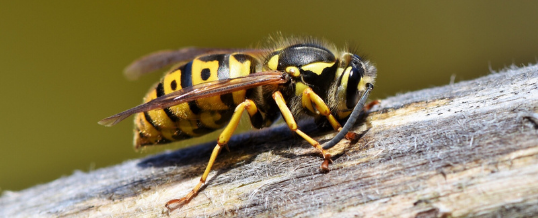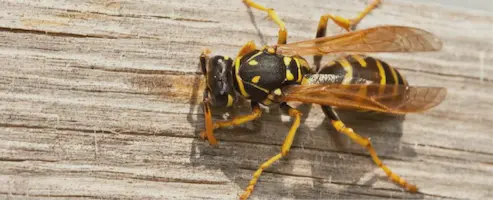Melissophobia, also known as apiphobia, is the intense fear of bees. Thousands of people experience this fear, especially after having a negative experience with stinging insects or experiencing insect bites and stings. When you have trouble with stinging insects in your yard, you can find ways to deal with these pests in your outdoor areas.
Do you want to learn how you can prevent flying insects that sting? Keep reading these tips to keep these pests at bay.
Maintain Your Home, Garage, And Other Outdoor Spaces
The first step to preventing stinging insects from nesting in your home is to make sure you properly maintain your home, garage, and other outdoor spaces where stinging insects commonly nest. Many types of insects like wasps and bees build their nests in holes.
For example, if you have broken panels, missing post caps on your fence or deck, or other crevices that are open to the environment, this provides a perfect place for insects to nest.
If you want to prevent this from happening, it is vital that you patch any holes, fix broken panels, and do whatever else you can to block off common nesting areas of your house.
Remove Old Nests
If you have had a wasp or stinging insect infestation in the past, you may have leftover nests that were never removed. To prevent another infestation in the future, it is vital that you remove old nests during the winter.
This is because many wasps and bees will continually return to the same nesting site, even after years. If they notice a nest, they may build in the same place twice.
By removing old nests, you make your home a less hospitable place for stinging insects to nest.
Use Traps
It can be scary to deal with wasp nests in your yard, especially if you are not sure if they are active. If you do not want to get too close to a nest, you can try removing stinging insects by using traps.
Sticky traps are an inexpensive and easy way to remove any stinging insects from your yard or if one makes its way into your home. Other traps trap wasps and other insects in a funnel and prevent them from getting out. Traps are a great way to get rid of a few stinging insects in your yard.
However, if you have an infestation or several nests in your yard, you will likely need the help of a professional to remove them.
Keep Sweet Foods Covered Up
Many people notice that wasps and other stinging insects tend to come out during a barbeque or an outdoor picnic. One of the reasons for this is that there is sugary food, drinks, and other food that these insects may try to eat.
One way to keep them from crashing your outdoor eating is by keeping food, especially sugary food, covered up.
Block Entrances To Your Home
Blocking entrances to your home is an easy way to avoid any type of stinging insect infestation. If you leave your windows and doors open without screens, stinging insects and many other pests can find their way into your home.
Just like any other pests, wasps can crawl into your home through other cracks and crevices. Make sure you seal this off if you notice any stinging insects around your property or in your home.
Avoid Sweet Perfume
Many people don’t realize that stinging insects, especially bees, are attracted to sweet smells. While this is often used to find sweet food and nectar, it also makes bees and other pests attracted to the smell of your perfume.
When you wear sweet-smelling perfume in your yard, you may become more of a target for stinging insects. If you find that stinging insects approach you outside, make sure you stay calm and try to avoid shooing them away.
Keep Garbage Covered
Another way that you can handle a wasp problem on your property is to always keep your garbage covered. Wasps are attracted to food, so they may try to find the leftovers in your garbage can.
By keeping your trash cans covered, you eliminate their food source and will keep them from coming to your home.
Call an Exterminator
Finally, if you are not able to remove stinging insects on your own, it is time to find an exterminator to help. Rather than risking experiencing the insect sting pain index, you can hire a professional company to remove active wasp nests and other stinging insects from your property.
Wasp removal experts know how to remove nests safely and effectively without creating any additional problems. If you notice any active nests, contact a company that offers stinging insect removal.
Get Profesional Help With Stinging Insects Today
Having wasps, or other black stinging insects can put a damper on your summer get-togethers. Not only are they some of the most painful insect stings, but they can cause a lot of issues in your yard as well. By following each of these tips, you can keep wasps and other stinging insects out of your yard and away from your home.
If none of these tips have worked for you, it may be time to get professional help. Do you need help with stinging insect and wasp control in the Memphis area? Inman-Murphy Pest Control can help!
Contact our team today to learn more about our Memphis pest and stinging insect control services or check out our website to get a free estimate for wasp removal.


